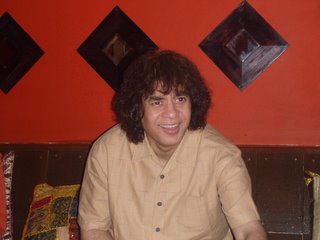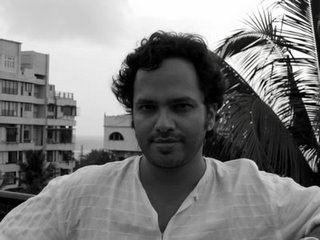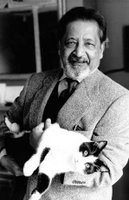
Today is the first day of 2006 and I am writing my first post of the year. My new born daughter has practically kept me awake the whole night, and this morning only after quarter to six, when she was finally lulled to sleep, I could do some work. After that, this post. So welcome again and let me say it to you: Happy New Year!
First things first. Any new year resolutions? None. And I have not smoked for the past one week. Before that I had taken a smoking break for a while, in a smoking, non-smoking career spanning over a decade now. Writing-wise any new plans? Yes, sure. There is a novel ms to polish, and another ready to be written. The idea is ready and I should start writing a few paragraphs everyday from today onwards. Should. That's a dangerous word!
2005 was unique for me. I did not write a single short story. I started writing one and it is still unfinished. Was I trying to be a perfectionist? Maybe. You could say that. I want to achieve the kind of balance and beauty that I felt in Hemingway's
The Indian Camp. I personally like stories that have both soul and brevity. Long short stories? I generally keep a distance from going to such lengths unless necessary.
The highlight of 2005 was the launch of
Kitaab.org. I started it as a resource window on Asian writing in English. So far it has done fine. Some of my friends have been kind enough to support the site with content. I had expected many others to join me in this endeavour. At times I suffered disappointments. Turns out that people are not as interested in literature as in their own selves, which is understandable.
The Asia Pacific Writers Network also registered its presence in 2005. It is a great development for Asian writing.
The year gone by was strong in non-fiction. I did manage to write a few non-fiction pieces here and there. It was a great experience, especially working with some of the American editors. In 2005, I also read more of non-fiction than fiction. Here is a representative list:
Non-fiction:
All the President's Men, Liberty or Death (Patrick French), The Idea of India (Sunil Khilnani), Maximum City, The Jaguar Smile, 13 Ways of Looking at the Novel, Literary Occasions, Desperately Seeking Paradise, Holy War, The Crisis of Islam, The New Jackals, The Art of Fiction, Naked Woman, etc. (You could see a lot from my backlog)
Fiction:
Shantaram, Woody Allen--The Complete Prose, The O.Henry Prize Stories 2003, The Vintage Book of Indian Writing, Tropic of Capricorn, Psychoraag, Transmission, Away, Be Cool, etc.In movies, I must would have seen over 200 films this year (all languages, both new and old). This year's some of the best movie experiences were:
Black, The Downfall (German), The 400 Blows (French), The Decalogue (Polish), Nine Queens (French), Madadayo (Japanese), Melinda and Melinda, Pather Panchali, How Green Was My Valley, In the Mood of Love (Chinese), Farewell, My Concubine (Chinese), Bunty Aur Bubly, Paheli, Sarkar, No Entry, Cyrano de Bergerec, Sideways, The Life Acquatic with Steve Zissou, King Kong, Main, Meri Patni Aur Woh, Spanglish, Maria Full of Grace, Man on Fire, etc.Truffaut's The 400 Blows will remain an unforgettable film for me. Was it the precursor of all those great Iranian films?
I was really impressed with Sanjay Leela Bhansali's Black but when I saw The Miracle Worker, I lost some of the respect for the filmmaker, at least in terms of orginality. But to be fair to Bhansali, his work is glossier and he has taken the story foreward in his version of the Hellen Keller story.
Chandan Arora's Main Meri Patni Aur Woh is simply delecious. There is a Basu Chatterjee kind of old world charm here. Hazaroon Khwahishen Aisi was also remarkable. Chocolate was high class trash. How could Vivek Agnihotri shamelessly copy the supercool Usual Suspects? More than that, how could a talented actor like Irfan Khan agree to play Bollywood's version of Kevin Spacey? I am yet to see Maine Gandhi ko Nahin Mara but I hear it is really good. Apharan is also supposed to be good.
Hopefully, Bollywood would try to be more original in 2006. And there would be great novels to read. I am already running a huge backlog... God help me!








